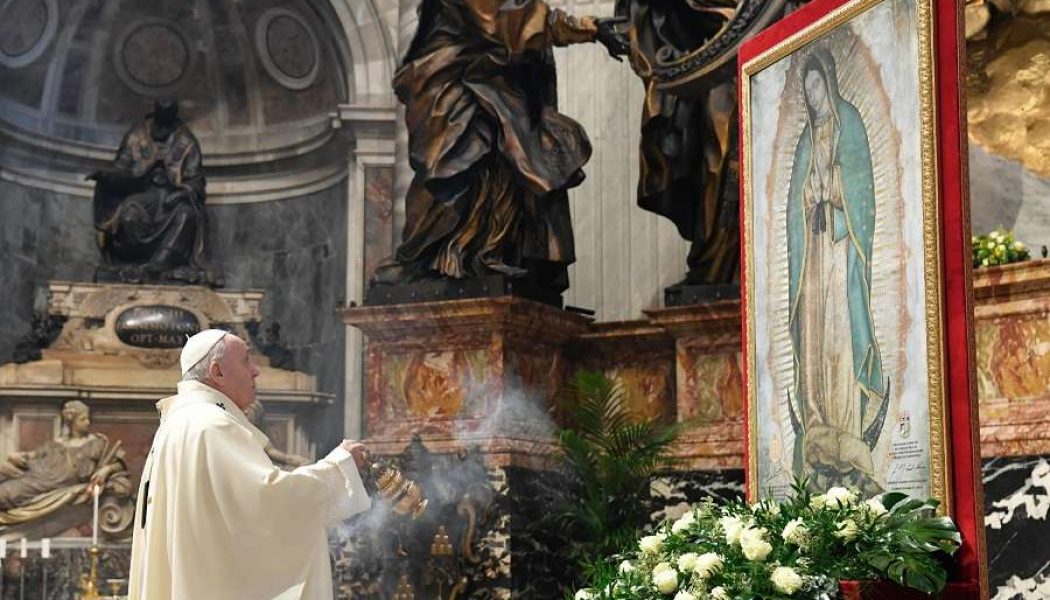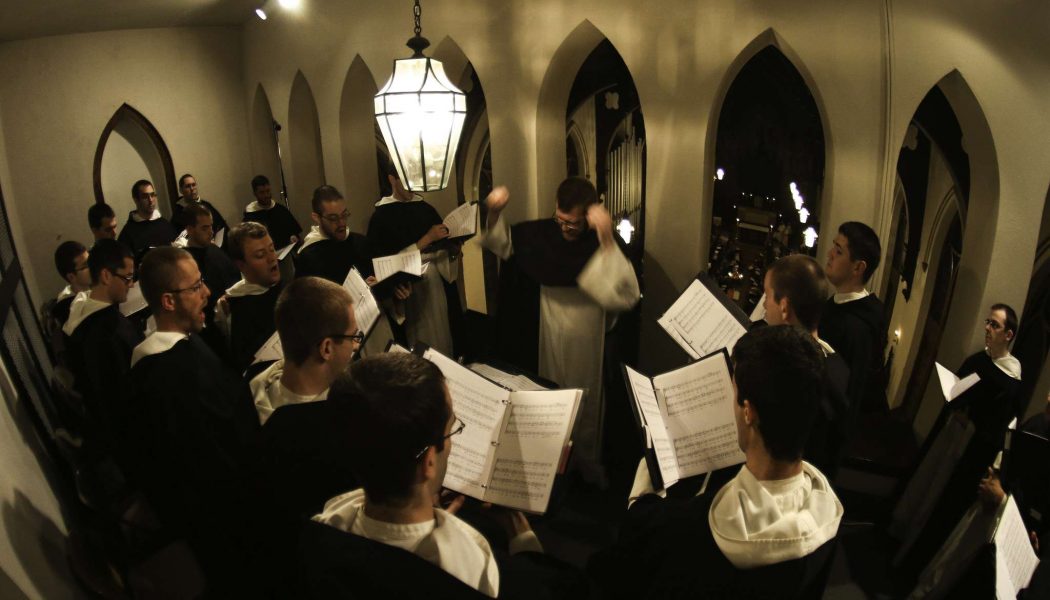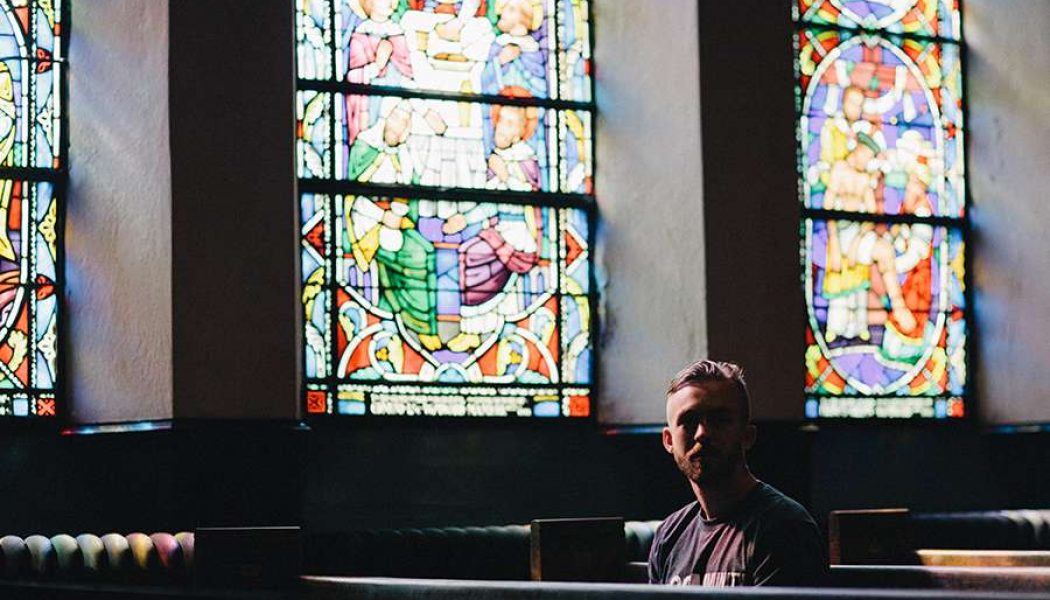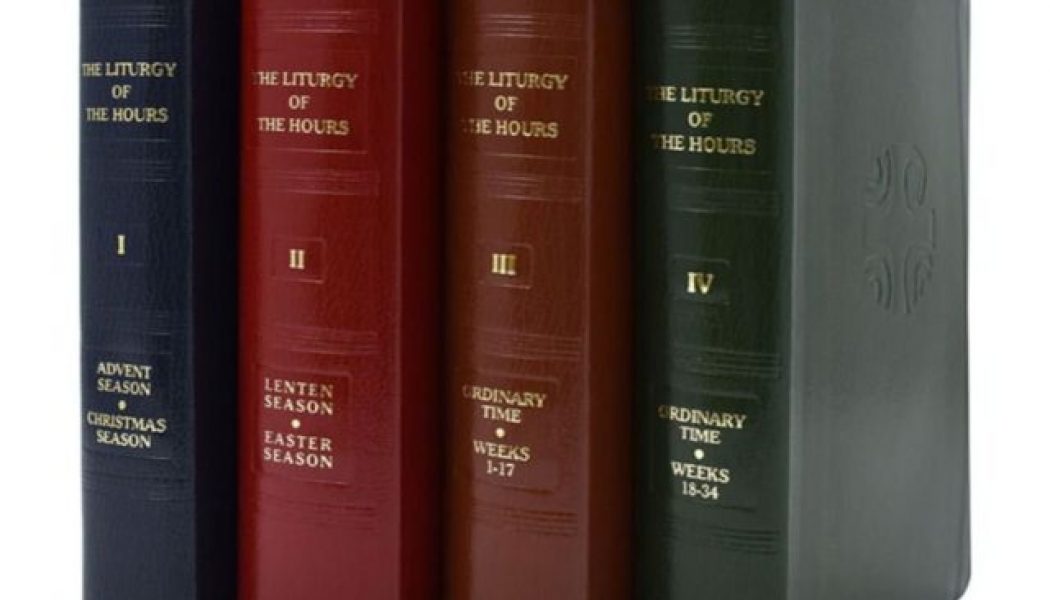Discover
Pope Francis: The image of Our Lady of Guadalupe points us to God’s ‘gift, abundance, and blessing’…
Vatican City, Dec 12, 2020 / 05:00 am MT (CNA).- The Virgin Mary teaches us about God’s gift, abundance, and blessing, Pope Francis said Saturday on the Feast of Our Lady of Guadalupe. “Looking at the image of the Virgin of Guadalupe we somehow also have the reflection of these three realities: abundance, blessing and gift,” he said in a homily Dec. 12. Pope Francis offered Mass in Spanish for a limited number of people in St. Peter’s Basilica to mark the Feast of Our Lady of Guadalupe, patroness of the Americas and the unborn. Mary, is “blessed” among women, the pope noted, and the vessel who brought us the gift of Jesus. God is “the Blessed one by nature” and she is “the Blessed one by grace,” he said. “The gift of God was presented to us as a blessing, in the Blessed by nature and in th...
Someone redid ‘Every Breath You Take’ as an old-timey honky-tonk song and the result is genius…
[embedded content] Courtesy of the YouTube channel ‘There I Ruined It’ Join Our Telegram Group : Salvation & Prosperity
Ken Craycraft: The Biden administration will put Christians on notice…
December 10, 2020 President-elect Joe Biden “certainly has no interest in following the Church’s teaching on anything. Even to the extent that it might coincide — some of his positions — with Catholic Church teaching, it’s not informed by Church teaching, it’s informed rather by [the] Democratic Party platform,” said Ken Craycraft, author of the recent First Things article, “What Christians can expect from Joe Biden and Kamala Harris.” Craycraft, an attorney, was recently named the James J. Gardner Family Chair of Moral Theology at Mount St. Mary’s Seminary & School of Theology in Cincinnati. Follow him @kcraycraft on Twitter. Join Our Telegram Group : Salvation & Prosperity
‘All Are Welcome’ is not a welcome hymn at Mass, USCCB doctrine committee says…
CNA Staff, Dec 10, 2020 / 07:01 pm MT (CNA).- The doctrine committee of the US bishops’ conference (USCCB) earlier this year produced a guide to evaluating the lyrics of hymns on the basis of their doctrinal content, noting that Vatican II declared sacred music’s purpose to be “the glory of God and the sanctification of the faithful.” “Christian tradition, both Eastern and Western, has from antiquity been acutely aware that hymns and other songs are among the most significant forces in shaping – or misshaping – the religious and theological sensibility of the faithful,” the committee wrote in “Catholic Hymnody at the Service of the Church,” which is dated September 2020. “It is all the more important, then, that hymnody selected for the liturgical life of the Church successfully draw out t...
Let’s explore a nearly-indecipherable Gospel passage that is difficult but rich in blessings…
There is a passage read at yesterday’s Mass (Thursday of the Second Week of Advent) that is complex, to say the least. A footnote in the Ignatius Study Bible calls a phrase in it, “nearly indecipherable.” So, let’s wade into the text and see what we find. For the record, the brief passage is, as follows: Jesus said to the crowds:“Amen, I say to you,among those born of womenthere has been none greater than John the Baptist;yet the least in the Kingdom of heaven is greater than he.From the days of John the Baptist until now,the Kingdom of heaven suffers violence,and the violent are taking it by force.All the prophets and the law prophesied up to the time of John.And if you are willing to accept it,he is Elijah, the one who is to come.Whoever has ears ought to hear.” (Matt 11:11-1...
This Sunday, the humble rejoice and the proud complain…
By Tom Hoopes, December 10, 2020 This Sunday, the Third Sunday of Advent, Year B, Gaudete Sunday, Jesus is still absent from Sunday’s Gospel, but nonetheless the Church says “rejoice.” The readings even give the key to rejoicing: humility. It’s a paradox we easily miss. We can’t be joyful without being humble — and we can’t be humble unless we are “humiliated” according to Mother Teresa and “despised” according to St. Gregory the Great. Only one person in the Gospel reading today is more humble than John the Baptist. John is placed before us again as a great example of humility in his life, message and self-understanding. He eats bugs in the desert dressed in a hide, repeats “Repent!” to his audiences, and endlessly proclaims “I am not the Christ.” “I am not the Christ” means “I am no...
Gallup survey: Only frequent churchgoers avoided downward mental health trend in 2020…
CNA Staff, Dec 11, 2020 / 12:09 am MT (CNA).- Americans who attend religious services weekly are the only demographic group appearing to show improved mental health in 2020, despite the stresses of the coronavirus pandemic and other events, says a new survey. The survey otherwise shows significant self-reported mental health declines among those previously in excellent health. In 2019, about 42% of those who reported attending religious services weekly told Gallup that their mental health was excellent. In 2020, 46% said the same, an increase of 4 percentage points. Only 35% of those who attend services nearly weekly or monthly reported excellent mental health, down 12 percentage points from last year. Among those who attend seldom or never, 29% reported excellent mental health, down 13 pe...
What novels can teach us about evangelization…
After years of producing apologetics, I recently learned something new about evangelizing others.
Dogsledder Blair Braverman shares her top 10 tips for keeping warm in frigid temperatures…..
As a dogsledder, one of the biggest misconceptions I’ve encountered is that I must be made of sterner stuff than other people, or that I simply don’t mind being cold. In fact, I am a baby. I like soft and comfortable things, and my circulatory system is decidedly average. But staying warm in deep cold—or even, say, shallow cold—isn’t something that most people are born good at; it’s a skill that anyone can improve, and it opens up a whole season of outdoor possibilities. Maybe you spend your winters pining for spring, dreaming of long weekends outside again. Maybe you’ve just moved to a colder place and you have no idea how the locals do it. Or maybe you’re looking for ways to get out of the house safely, without violating social-distancing guidelines. Have no fear! Here are ten prin...
From closets to subway tile: How previous epidemics shaped the design of your home…
Subway tile in Nate Berkus and Jeremiah Brent’s New York apartment Photo: Douglas Friedman If you’re doing your part and social distancing from inside your home, you may start to notice small details of your house or apartment you hadn’t thought about before—like why your older home doesn’t have a closet, or how white subway tile became so ubiquitous. You may also be wondering if there’s anything you can do—aside from the usual cleaning and disinfecting process—to help keep your home as virus-free as possible during the coronavirus outbreak. Whether you realize it or not, a number of the design features in our homes today originated, or were popularized, because of previous infectious disease outbreaks, like the 1918 flu pandemic, tuberculosis, and dysentery. There is a very long, very int...
Can Christians go woke?
If we have suffered wounds from rampant infidelity to Christ, we won’t resolve them by a different sort of infidelity to him. The division between orthodoxy and ideology among Christians has reached a new level of obstinacy. Both sides fear the other poses an existential threat to their core values. And in a way both are correct. By Noelle Mering There is a recurring movie scene, some version of which might be familiar to most, where a woman, fed up and visibly disgusted, gets in a car and tells the driver to take her anywhere but here. Her aversion to what she is leaving behind is palpable and her destination is irrelevant. It’s a funny encapsulation of that feeling of having had enough with such intensity that we are consumed by the thing we are rejecting. But in reality, of course...
Some motivation to say the Liturgy of the Hours…
Someone writes: What advice would you give to a priest that had trouble staying loyal to the liturgy of the hours–especially if they have trouble finding them fruitful or just a checklist thing to do? I’d have several pieces of advice: 1) We all go through periods of spiritual dryness in which particular activities do not seem fruitful to us and more like a checklist. Do not worry about this. Accomplishing our duties even when they do not seem personally rewarding actually increases the merit of doing them, as it is persevering in spite of difficulty. This represents the principle that God uses to bring good out of adversity, the supreme example of which is Christ’s redemption for the world from the Cross. However, the same principle is at work in our lives when we do what we should in spi...























